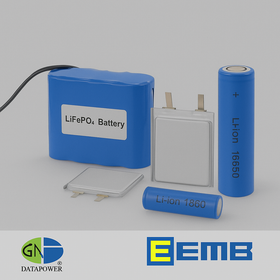We will introduce the types and characteristics of representative thermoplastic plastics.
Thermoplastic plastics are plastics that become soft when heated. Once softened, they can harden again upon cooling, which makes them excellent for processing such as molding. ■ Types and characteristics of thermoplastic plastics - Polyethylene (PE): The most widely produced plastic, used in items like shopping bags and food containers. - Polypropylene (PP): More heat-resistant than polyethylene, used in films and cases. - Polyvinyl chloride (PVC): Flame-resistant and durable, used in pipes and electrical wire coatings. - Fluororesin (PTFE): Excellent heat resistance, non-stick properties, and low friction characteristics. For more detailed information, please check the related link: "What are the differences between plastics, resins, and polymers? An explanation of the types of plastics and their advantages and disadvantages."
Inquire About This Product
Related Videos
basic information
■What is Plastic Plastic can be considered one of the types of resin, so plastic and resin are not different things. However, in Japan, the components of plastic are clearly defined by JIS, distinguishing resin as the raw material and plastic as the molded product. The process of making plastic involves extracting "naphtha" contained in crude oil through distillation, and from there, it goes through processes such as "polymerization" and "pelletizing," ultimately becoming plastic in a molding factory. *Quoted from the linked article.
Price range
Delivery Time
Applications/Examples of results
Please feel free to contact us.
catalog(1)
Download All CatalogsCompany information
To maximize the performance of manufacturing equipment and machine parts, Yoshida SKT derives the "optimal solution" tailored to our customers from hundreds of surface treatment technologies. - Decreased productivity due to adhesive troubles - Instability in product quality due to friction - Early deterioration of equipment due to corrosion We respond to these challenges in the manufacturing field with our extensive track record and reliable technical expertise. In 1963, we began fluoropolymer processing. In 1968, we signed a licensing agreement with DuPont (now Chemours), supporting manufacturing innovations for over 2,000 customers across various industries, from automotive to medical and aerospace. Furthermore, in 2024, we are focusing on the development of next-generation products, such as PFAS-free coatings, contributing to the advancement of sustainable manufacturing. With a three-base system in Nagoya, Tokyo, and Yamaguchi, we flexibly respond to both mass production and custom orders. Our consistent quality management system ensures that we deliver reliable quality. For solving challenges in the manufacturing field, trust the surface treatment experts at Yoshida SKT.






![Ultra-thin film coating "Nano Process®" [New product information available]](https://image.mono.ipros.com/public/product/image/1a3/2000319191/IPROS69068488120426591495.jpeg?w=280&h=280)

![[Coating Example] Fluororesin Coating (PFA) on Rolls](https://image.mono.ipros.com/public/product/image/7a6/2000493607/IPROS81546512375807495105.jpeg?w=280&h=280)


